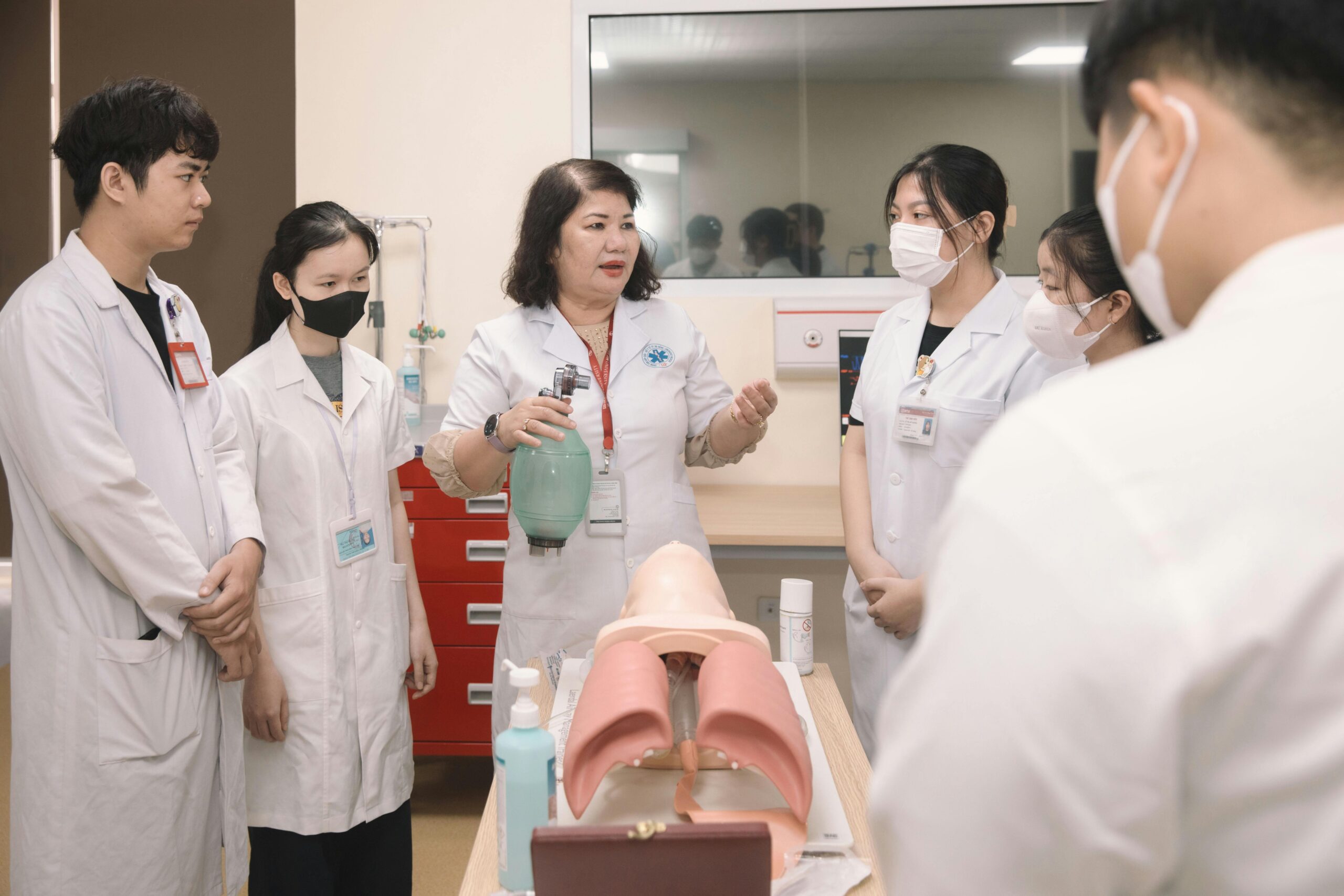Medical school is packed with many challenges, hurdles, and demanding experiences. Preparing yourself earlier will help you manage academic stress and fulfill high expectations. Clinical rotations are a pivotal phase in every medical student’s journey. It is when you are transitioning from theoretical learning to real-world patient care. During clinical rotations, medical students finally step into hospitals and clinics, applying knowledge in real-life scenarios. However, this transition is not without its hurdles. From performance anxiety to navigating complex hospital systems, clinical rotations present unique challenges.
Let’s explore the most common challenges MD students face during clinical rotations and provide practical strategies to overcome them and succeed in your clinical rotations.
Adjusting to a New Learning Environment
Moving from the classroom to the hospital setting is a major shift. Instead of lectures and textbooks, students now learn through patient interactions, observations, and hands-on experiences. You work in different medical specialties such as surgery, obstetrics and gynecology, internal medicine – to name a few. You will get the opportunity to work with residents, physicians and healthcare staff, learn different treatment options and medical conditions. The unstructured, fast-paced environment can feel overwhelming.
How to Tackle It:
- Be proactive: Take initiative by asking questions, offering help, and volunteering for different clinical tasks.
- Embrace uncertainty: It’s okay to not know everything. Focus on learning rather than performing.
- Reflect regularly: Use a journal to track what you observe and learn daily. It helps reinforce learning and builds clinical judgment.
-
Time Management and Fatigue
The MD program is packed with rigorous academics. When medical students are introduced to real-world patient care, balancing long hours, early mornings, and night shifts can be overwhelming. Balancing study time with clinical responsibilities becomes difficult, leaving students physically and mentally drained. However, setting clear priorities can make it easier for students to make this new schedule more manageable.
How to Tackle It:
- Prioritize tasks: Use tools like to-do lists or digital planners to stay on the right academic track.
- Protect your rest: Sleep is crucial. Nap strategically and maintain sleep hygiene.
- Study smarter, not harder: Focus on high-yield information and use spaced repetition.
-
Imposter Syndrome and Self-Doubt
Many students feel unprepared, inadequate, or fear being judged by peers and supervisors. Imposter syndrome is an emotional hurdle that many students face, especially in clinical rotations where the pressure to perform, learn quickly, and meet high expectations can trigger feelings of inadequacy. This psychological pattern can significantly impact students’ performance, confidence, and overall well-being.
Clinical rotations are supervised and evaluated closely, which can heighten a student’s fear of being judged. This anxiety may lead to students second-guessing their decisions, doubting their abilities, or fearing they will make a mistake in front of supervisors or patients.
How to Tackle It:
- Acknowledge your feelings: Understand that these emotions are temporary and do not reflect your personal abilities.
- Seek feedback: Constructive feedback can validate strengths and highlight areas for improvement.
- Find mentors: Senior residents, attending physicians, or even peers can offer support and guidance.
-
Performance Evaluation Anxiety
During clinical rotations, students are not only expected to apply theoretical knowledge but to do so under observation, often in high-pressure environments. This creates a perfect setting for performance anxiety to emerge. Many students feel they don’t yet have the skills to perform at the level expected in real-world clinical settings. This can lead to self-doubt and incompetence.
Feeling anxious about being evaluated is normal, especially in a high-performance environment. Accept that you won’t know everything and you are not expected to. Supervisors know you are still learning. Focus on being teachable, engaged, and open to feedback.
How to Tackle It:
- Ask for mid-rotation feedback: This allows you to adjust before final assessments.
- Clarify expectations early: Ask attendings or residents what they value in a student.
- Focus on growth: Instead of obsessing over grades, aim to become a better future doctor.
-
Emotional Challenges During Clinical Rotations
Witnessing suffering, serious illness, or death is one of the most emotionally challenging aspects of clinical rotations, especially for medical students encountering these experiences for the first time. Learning to cope with these moments in a healthy, sustainable way is crucial to make the most out of your clinical rotations.
Emotional resilience is not innate; it’s a skill you can build during your medical school journey. By actively working on resilience, you will not only protect your own well-being but also become a more compassionate, grounded, and effective healthcare provider.
How to Tackle It:
- Talk about it: Share your experiences with peers, mentors, or mental health professionals.
- Engage in self-care: Exercise, meditate, or spend time doing things you enjoy.
- Accept your emotions: Feeling sad or overwhelmed is human. Processing these feelings helps you grow into a compassionate physician.
-
Dealing with Burnout
Burnout is a serious and common issue faced by medical students during clinical rotations. The long hours, emotional stress, high expectations, and physical fatigue can create a perfect storm for burnout if not managed proactively. Clinical rotations are demanding, but you don’t have to sacrifice your physical and emotional health to succeed. By being intentional about self-care, reflection, and support, you can not only survive but thrive during this phase of your medical journey.
How to Tackle It:
- Practice Mindfulness: Stress management apps like Headspace, Calm, or simple breathing techniques can help manage stress in the moment.
- Prioritize Self-Care: Aim for consistent rest, eat healthy meals, hydrate, and go for short walks.
- Set Realistic Expectations: You are here to learn, not to be perfect. It’s okay not to know every single detail or perform every procedure right.
Final Thoughts
If you are a med student navigating rotation, remember you are not alone. Keep learning, keep trying, and believe in yourself that you are on your way to becoming a capable, compassionate physician. Clinical rotations are a great opportunity for medical students to polish their hands-on skills. They are challenging, no doubt, but also incredibly rewarding. Every challenge is an opportunity to build resilience, skill, and empathy. With the right mindset and support, you can not only survive but thrive during this transformative phase of your medical journey.







